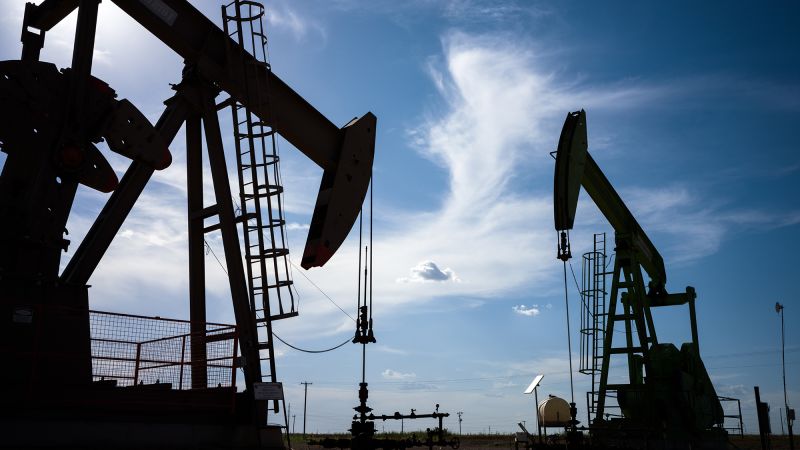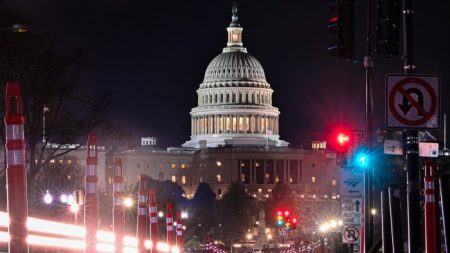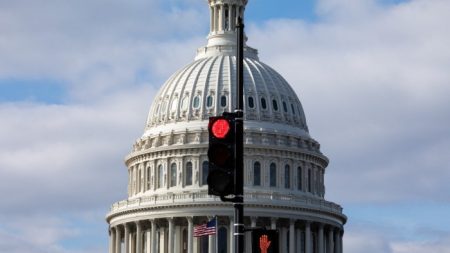Oil prices are near three-year lows. Gas prices are sinking below $3 in many parts of America. So why were Vice President Kamala Harris and former President Donald Trump talking so much about expanding oil production during Tuesday night’s debate?
Harris, criticized for her previous stance against fracking, noted that she represented the tie-breaking vote in the Senate to open new fracking leases in 2022. Though Harris also repeatedly touted her support for clean energy solutions, she correctly acknowledged that under the Biden administration, the United States has been producing more oil than any country has in history.
Meanwhile, Trump, who supports a rapid expansion of oil production, attacked Harris for policy proposals that he said would decimate America’s fossil fuel business: “If she won the election, the day after that election, they’ll go back to destroying our country and oil will be dead. Fossil fuel will be dead,” Trump said.
Trump also said, “She has a plan to not allow fracking in Pennsylvania or anywhere else,” a charge that Harris denied.
Andy Lipow, president of Lipow Oil Associates, told CNN in a phone interview on Wednesday that he’s “not at all concerned” about the fossil fuel industry getting destroyed because Americans still rely on oil for gasoline, diesel and jet fuel.
It’s also worth noting that ending fracking, let alone the entire fossil fuels industry, would be self-defeating for a politician because it would anger voters by spiking gasoline prices.
For all the candidates’ talk of promoting fossil fuel production, it’s not clear that America needs drastically more oil. (And climate scientists say that’s the exact opposite of what the planet needs).
US crude prices settled below $66 a barrel Tuesday, their lowest level since December 2021, before bouncing back a bit Wednesday.
Gas prices are at a six-month low, according to AAA. Meanwhile, OPEC+, a group of major oil-producing nations, is so worried about excessive supply and weak demand in China that it delayed plans to ramp up production.
US oil production has already spiked to a record of 13.4 million barrels per day, according to weekly federal data.
Lipow said it would be “difficult” to get US output dramatically above 14 million barrels per day because all of the most efficient and cheapest places have already been drilled.
“Yes, production can go higher. But are we going to increase oil production by another 50%? That’s probably quite unlikely,” said Lipow.
Bob McNally, president of Rapidan Energy Group, is also skeptical that US output can spike.
“As a rule, the president doesn’t have the power to quickly ramp up US oil production. The industry operates all out,” said McNally, who served as an energy adviser to former President George W. Bush. “Presidents can do harm. They can make production go down suddenly. I wouldn’t go as far as to say Kamala Harris would do that, though.”
Trump has touted in recent weeks that gas prices were below $2 a gallon when he was president. He has promised to return gas prices to that level if he were to be reelected.
There are a few problems with that: The last time gas was below $2 a gallon, the world was in a recession because of the pandemic shutdowns, according to the US Energy Information Administration. Travel came to a standstill, crashing demand for fuel. It got to the point where oil prices briefly went negative for the first time ever as companies scrambled to find places to store all those unwanted barrels.
Before the pandemic, the previous time gas was below $2 a gallon was in 2016, when America ramped up fossil fuel production so much that it created a massive glut of oil and gas, eventually bankrupting a number companies. And before that, gas was last below $2 a gallon during the global financial crisis.
So it would likely take an extreme — or calamitous — event to get gas prices back below $2. In other words: The next president can promise what he or she wants: They can open up drilling permits and expand areas to frack. But that doesn’t mean there will be a market for all that oil — and it might not make financial sense for companies to take advantage.
Read the full article here













